


Jon Shafer knows 4X games. After all, he's spent at least half his life on them. Starting in high school the 30 year old games designer slowly climbed the ranks at Firaxis, first as a teenaged Civilization III modder, then as a Civilization III expansion beta tester, to programming intern and later, full time designer and programmer on the Civilization IV expansions.
After conquering the development ranks by reaching lead designer and principal gameplay programmer for Civilization V, he moved on briefly to Stardock to work on an unannounced title but left two years later to found his own studio, Conifer Games, where he remains today working on At The Gates. This Kickstarter-funded strategy title pits the player as barbarians playing against the Roman Empire, competing for land and dwindling precious resources as they strive towards the superior society.
I spoke with him recently about At The Gates, strategy games, what it's been like to carry a studio on his own shoulders, and whether Kickstarter has helped or hindered the creative process. He was very generous with his answers, even when I asked (because you know I just had to) about those oh-so-controversial hexagonal tiles in Civilization V. Read on!

Unlike other 4X games, At The Gates is played from the perspective of the Barbarians, eschewing the typical empire-building in favor of a more nomadic-style pursuit of victory. Was this inspired at all by Civilization and its use of raiding Barbarian camps? As I read up on At The Gates, I felt myself lamenting that Civ 5 does not have a mode that allows you to go against city states and civs as a Barbarian camp/unit.
To a certain extent that is true given that you could draw a line from pretty much everything in At The Gates back to Civilization, but I'd probably say the most direct inspiration was simply wanting to do something new and fresh within the 4X genre.
In the years prior to starting work on it I’d been bouncing around ideas for a strategy game that would prominently feature map evolution, and the fact that it took shape into one about barbarians taking down Rome was a result of my interests at the time combined with a random, lucky stroke of inspiration designers usually get while walking the dog or taking a shower or something.
Back in mid-2012 my friend and fellow designer Scott Lewis told me about a scenario he was creating for Civ based on the fall of the Roman Empire, and specifically some interesting mechanics which bucked the usual 4X trend and made the game grow tougher over time. Also at his recommendation, I’d been listening to Mike Duncan’s excellent History of Rome podcast obsessively for several months.
With my brain merging challenge, Romans, and transforming maps into an eclectic mental soup (resulting in some really strange dreams) it eventually hit me that this was actually a perfect recipe for a real, interesting game. However, it became obvious pretty quickly that for such a game to still play anything like a 4X its protagonist couldn't be the decaying Empire everyone is used to playing given that their days of expansion and exploitation were long past but instead their 'barbaric' counterparts. For someone with both a history degree and a penchant for pushing the envelope the fact that this new game would put players in the shoes of a people nearly always thought of as the antagonists was very much a cherry on top!

By comparison to major civilizations, the Barbarians lived a more nomadic lifestyle, which presents thematic issues in a game where resource-building is key to victory. This however seems to be addressed by the “finite resources” aspect, forcing both the player and their opponent to fight for key necessities til the end. In what other ways have you adapted At The Gates to better fit the narrative of the historical Barbarians?
Oh there are a ton, which has certainly been one big reason why this game has taken so long to make. And it's not just a thematic challenge either but also a mechanical one, together forming a sort of design 'tug of war' in which the best games eventually achieve a harmonious equilibrium. The Civ community especially enjoys a good 'realism vs. gameplay' debate, and the truth is that having both is in fact possible if you put in the time and effort. In terms of AtG specifically, the two best examples of this back-and-forth are the finite resources already mentioned and the clans system.
Our natural human inclination is to find a nice cozy spot and then hunker down there until, well, forever! The change to make resources finite you mention was envisioned as the primary tool to get people off their behinds and instill the game with that 'nomadic' feel. After all, anyone who's run out of iron and wood and can no longer build anything will realize it's time to pack up and move... right? Well, in reality I found that actually wasn't enough for some players, who were content (if not particularly happy) to sit around doing nothing for as long as the game would let them.
After racking my brain and trying out a hundred different things I eventually discovered that there's one unique things which pretty much everyone can be motivated by: starvation. I found this was true even when there isn't actually a tangible penalty attached to it, unless some scary-looking red text counts! So finite food in particular now serves as one of the game's primary motivating forces. And although food is an important resource in pretty much every 4X, hammering out the details of where you can find it, what different types there are, how to harvest it, when it runs out, whether you it can be bought from caravans, etc. have been one of AtG's unique design challenges.
The other big fault line where AtG's theme collided with typical 4X mechanics was with the exploitation 'X'. A big part of every strategy game is a sense of progress and achievement, and in the Civ games this manifests itself in numerous ways but the most important all have something to do with the map, such as expanding your borders, founding new cities, building farms and roads, constructing libraries and wonders, and so on. The visible stamp players leave on the world is a constant reminder that they've actually made something.
By far the biggest problem we kept running into was that none of those things are possible in AtG because of its migratory theme. With only a single settlement and no buildings how do you actually make the game satisfying? We tried adding resources, giving units new abilities, and adding a tribal council, but none of these changes really fixed things.
We eventually did so through a radical redesign in early 2014 which saw the introduction of 'clans' to the game. This was inspired in part by Crusader Kings 2, King of Dragon Pass, and Colonization, all of which being well-known as 'special' strategy games with more personality and greater appeal than is typical of strategy titles. AtG's generic population numbers were now replaced by specific individuals with unique names, portraits, traits, and personalities. No longer were you training "1,000 population" into archers, but the aggressive and superstitious Clan Hereweald, and over time Hereweald might be trained in several different professions, learn new skills, increase in size, and might even die on the battlefield.
Clans added a new dimension to the game and flipped what had been its biggest weakness into its biggest strength and what games-marketing-folk would call a 'killer' feature. Not only does it add an element of personality and storytelling, but it just makes sense. Our lack of knowledge about the Germanic tribes of that era might seem like a disadvantage compared with the background material behind Civilization, but I feel it's actually the opposite because it provides us with plenty of room to apply some imagination.
It's unfortunate that so many people associate history with that boring class in high school where Mr. Didn't-Really-Want-To-Be-A-Teacher made them memorize the year Henry VIII died and the names of all future monarchs he sired, because history is actually the story of people. People just like you and I with their own unique hopes and fears and quirks. We may not have actually heard their stories, but I have no doubt those journeys of desperate, hungry, and scared families from one end of a continent to another were very personal, human, and relatable, and I'm really proud that we might be able to capture even a little bit of that with a game like AtG.

At The Gates features the hexagonal tile, an addition to Civilization V that upset a lot of long time fans. Are they still, pardon my French, pitching you shit over that decision? Firaxis for their part seem to be standing behind it, as Beyond Earth still made use of the hexagonal tile. Have you played Beyond Earth? Any thoughts?
My impression has always been that switching the series over to hexes might be the most popular change we made in Civ 5!
I know some fans dislike the fact that it reduced the number of connections to other tiles from 8 to 6, but aside from that it seems to be a pretty clear win. They measure distance more accurately because there are no diagonals, they're more organic and therefore attractive. It seems like just about every tile-based strategy coming out these days is making the switch to hexes or a similar approach, so that's a decision I'll certainly also stand by, and should I make other tile-based games down the road you can be sure they'll feature hexes.
I have played Beyond Earth, but no more than a couple hours worth. It's great seeing the terrestrial sci-fi theme revisited, as aside from Pandora there really hasn't been much in that corner of the 4X genre since Alpha Centauri. It's always tough adapting something like that from an existing game though, and I'm sure those guys would have loved more time to build it.
My favorite feature in Beyond Earth is the concept of an asymmetrical 'third party' existing in the world that doesn't play by the rules and is pretty much only around to spice things up. That's also kind of the role the Romans fill in AtG, but if you're on the other side of the map they don't affect you much. After all, there's only so fast a group of men with pointy sticks can walk, but if your theme is non-historical you can do all sorts of fun stuff like make tentacles pop out of the earth or winged demons fly over that mountain range you thought was safe. Might be something I play around with in a future title!
It’s easy to understand why there won’t be any other leaders or civilizations included in the game; in a historical context it makes perfect sense that the game pits the Barbarians against the Roman empire exclusively. That being said, are you planning on any other types of content updates for At The Gates following release? You have mentioned that At The Gates will be single player, but can a multiplayer adaption fit within the scope of your vision for the game?
The game does have a roster of ten playable factions in the game with their own unique leaders, gameplay traits, and more, so I could certainly see that growing if the game does well. And although we already have well over 100 clan traits they're another area where it would be easy to go wild. I've also toyed with the idea of making the Romans playable or adding an 'empire' mode which replaces migration with more builder mechanics, but those would require a pretty big investment.
I can't ever see multiplayer being one of those additions though, as it's something you really need to plan for from day 1, not only on the technical front but also with design. AtG is almost a 'strategy roguelike' hybrid in many ways, and the variety and occasional bit of arbitrary unfairness which characterizes the roguelike genre and makes it so much fun is a really, really bad fit for multiplayer.
In the end it's just a question of investment and priorities. We have such a small team making AtG that I committed to single player-only right out of the gate, something that has definitely helped us focus our efforts and a decision I don't regret at all. Multiplayer can be retrofitted into originally-single player games, one example being Civ 3, but as a huge Civ fan at the time I wouldn't exactly say that turned out terribly well, and their team and budget was quite a bit larger than anything we'll ever approach.

It’s very promising that you have put so much thought into the diplomacy aspect of At The Gates. The system used in Civilization V was often confusing to the point of worthless. To this day my strategy never relies on allyship with other civilizations. How heavily will diplomacy figure into victory? Are there multiple ways to win, allowing the player to pursue the strategy that best suits them, or will there be a strict path to a win state?
Diplomacy is an important element of AtG, especially in the midgame once you start migrating away from your starting area and bumping into other tribes.
4X diplomacy is infamously poor and best known for randomness, blandness, and arbitrary… ness. Is that a word? Anyways, with AtG we're getting away from that by taking what I like to call a 'story-based' approach where it's almost like reading a book where there are meaningful events within a consistent, unified narrative.
Our design priorities are personality and context, and everything we include in the diplomatic system aims to enhance one, the other, or both. AI leaders are very much driven by recognizable personalities and you'll always have a good idea of what they want and how to become friends (or enemies!) with them. They will occasionally pay you visits and ask you to make a decision, perhaps whether to denounce another leader they dislike or whether to pack up and get out of territory they want for themselves. They'll remember how you answer, and that will affect not only their behavior down the road but also that of other leaders.
We're also not afraid of making leader personalities and behavior fairly… extreme. If Attila always declares war if you refuse to give him what he wants that helps make him interesting and recognizable, even if it isn't always the smartest move. Other leaders will also tend to dislike one another, and it will be nearly impossible to stay on everyone's good side. If someone else asks you to denounce Attila then whatever you do will make one of them like you more and the other less!
Diplomacy is a tough challenge though and it's probably impossible to strike a balance such that all players are happy. Some will dislike the fact that we're emphasizing personality over optimal decision-making, but having both played 4X games extensively for over 20 years and developed them for over 10 I'm pretty confident this is the best direction to move in.
As for victory, we are planning to have multiple ways to win but haven't tackled that yet. Right now I'm thinking there will be three victory conditions including the obvious one of conquering Rome (duh), but also one centered around helping the Romans and basically becoming their stewards, and another about building a diplomatic alliance of other tribes. Given the story-based nature of diplomacy and the difficulty in getting other leaders to sit down without gouging each other's eyes out I have no doubt that last one is going to be both tough and rewarding!
One complaint I have about strategy games is that the menus can be overwhelming and difficult to navigate. It makes the genre very inaccessible; I know seasoned Crusader Kings II fans who still regularly rage-quit just trying to “find the button”. I notice however that At The Gates has a very simple interface. Is this a deliberate effort on your part or just a byproduct of the game’s alpha status? I’m also fond of the notes system At The Gates uses, as keeping track of details related to various tasks is another accessibility barrier that I think turns a lot of people off to strategy games. At only 400 hours into Civilization V, I often still feel like a newbie, especially because Civ 5 is the first empire building game I’ve ever played. Strategy games are notoriously difficult to learn and demand a level of multitasking that most gamers find very challenging. What do you feel the learning curve will be for At The Gates?
Glad you like the notes system! It was something I came up with on a whim while I was playing the game myself and having trouble keeping track of who I wanted to train as what. There should be a law or something that requires anyone who makes anything to actually use it for, I dunno, at least 50 hours or something. Anyways, back to AtG!
The UI we've shown in videos and screenshots is still very much placeholder but making it approachable and inviting is very much intentional. We made a lot of big improvements with Civ 5's UI and the goal with AtG is to raise the bar several steps further. Everything that's clickable will follow a consistent visual style, and the same is true for everything that has a tooltip. Ah, yes, the tooltips…
Although it may not sound like the sexiest bullet point tooltips are one of AtG's most important innovations. It's tough to get a feel for them until you've actually seen them in action, but the best analogy I can think of is if Wikipedia and Windows had a baby. I know, I know, stay with me here.
When you mouse over a tile a tooltip will pop up with a list of everything on the tile including terrain, units, resources, etc. Let's say you mouse over a tile with a forest, and then over "forest" in the tooltip - a new tooltip will now appear providing a basic description of what a forest is and how it works, and embedded in that description will be 'links' to several other topics like the timber resource that can be harvested from forests. It's like Wikipedia in that you can continue dive as deep - or not - as you want based on exactly what you're confused or curious about.
As for our other parent, every tooltip in AtG is super-simple by default, but some of the important ones contain 'windows' within them that you can open or close using small OS-style buttons in the upper-right corner of each. The tooltip for the archer profession starts off showing only a brief description and a portrait, but let's say you've played a couple games and want to know more. Not only can you expand the 'stats' window and see a full breakdown of its movement speed, vision range and more, but you can also collapse the basic description that is no longer helpful and now just taking up space. You can also see the contents of a collapsed window in a tooltip by mousing over the little bit of you can see, in case you don't want it visible all the time. Your preferences are also remembered and shared across the game, so if you close a profession's description window you won't see them anywhere, but the description window for structures will remain unchanged.
So, yeah, in case you couldn't tell I'm kind of a tooltip nerd! I'll cut myself off here though, and just wrap up by saying that we've definitely put a lot of love into AtG's UI, and I think players will be really happy with the results. This will certainly help smooth out the learning curve significantly, but AtG is not a simple game and the most casual fans of Civ will probably still find it overwhelming. Although I wouldn't say that's something I'm "proud" of I also don't regret that, as it's part of what makes AtG uniquely fun compared with other strategy game.
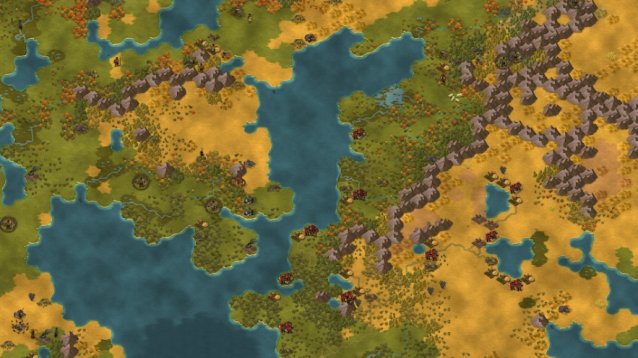
You have quite a history with Civilization. Strategy and empire building games have been a huge part of your life. At The Gates is your first solo endeavor, a game that bears the prefix of your name instead of Sid Meier’s. Does this bear personal significance to you as a designer? Do you feel pressure to live up to your legacy in strategy games thus far? Do you think at a different point in your career you’ll ever pursue another genre or type of gameplay?
My name being in the title has certainly generated a lot of discussion, some favorable and some not so much, and that's exactly the point. We're a tiny indie studio with no marketing budget making a hardcore strategy game about barbarians. Not exactly an easy sell! But some people will recognize my name and either become more interested if they're a fan of my previous work or more critical if they're not, and both help us in their own way.
When your name is next to the title of something people will associate the two, especially the quality of each. If you make something underwhelming or straight-up bad there's no hiding from that - people will always remember. But the same is also true if what you've made turns out to be something great. It's a way of putting your chips on the table and saying "yes, I have those pocket aces". I genuinely believe AtG will be one of the best strategy games ever and this is one way for me to show that I mean it.
The ability to switch genres is another related benefit. I can't see myself ever making flight sims or Facebook games, but projects outside of pure 'strategy' that still incorporate strategic and roguelike elements are certainly on the table. Even AtG is a blend of different genres, and I expect all of my future work will be similarly hard to pin a specific label on. The only thing I'm 100% sure of is that I'll always be making games that are deep, engaging, and replayable as that's just how I'm wired. There's very much an art to making simple cellphone games within 6-month development schedules but it's definitely not for me.
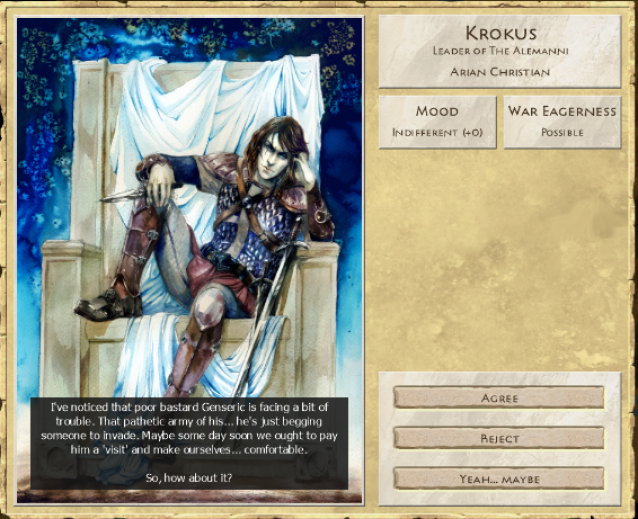
Initially the release window for At The Gates was early 2014; obviously that date has come and gone; however, your team has been generous with the frequent updates detailing the progress made along the way. What challenges have you encountered producing a game that is crowd-funded as opposed to more traditional funding means? Has Kickstarter funding been a boost or a boon to your creativity and/or productivity?
I can safely say it's been a boon in pretty much every way. Our backers have been incredibly supportive and patient and I think I've given out one, maybe two refunds this entire time. I think part of that is the fact that we've been very open about things and shared a lot of the design and development process, but even more thanks to the maturity and just-plain-awesomeness of our audience. A lot of other projects have not been so fortunate, and while many of those weren't great with the whole communication thing some of them did make a real effort. In the end all I can do is tip my hat to our backers.
The biggest advantage of having those patient and supportive folks behind us instead of a traditional investor is that we can afford to take our time and do things right. Making an innovative genre-bending game like AtG is more journey than job. Along the way we've played around with crazy ideas, tried things that didn't work, made mistakes, and learned a lot. An environment in which that's okay is truly invaluable and a perfect fit for how I like to make games.
Actually, I suppose there is one thing I regret about the whole crowd-funding thing: those screenshots we posted back during our campaign. We've, uh, made a bit of progress since then on the art front and it'd be great to press a button and make those all go away, but alas, once something's on the Internet it's there for good!



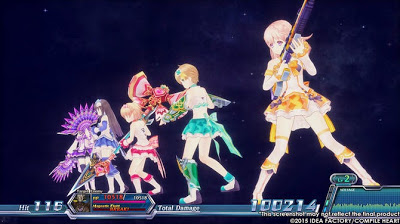
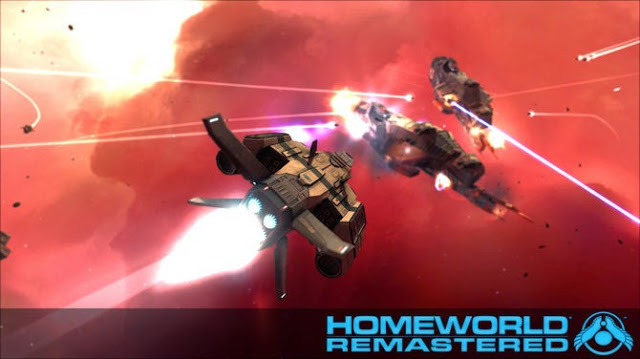 Homeworld Remastered Collection (PC) beginners guide
Homeworld Remastered Collection (PC) beginners guide MGS 5 The Phantom Pain bionic arm - all abilities / upgrades
MGS 5 The Phantom Pain bionic arm - all abilities / upgrades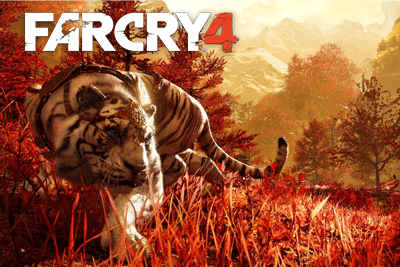 How to get Far Cry 4 Tread Lightly Trophy / Achievement
How to get Far Cry 4 Tread Lightly Trophy / Achievement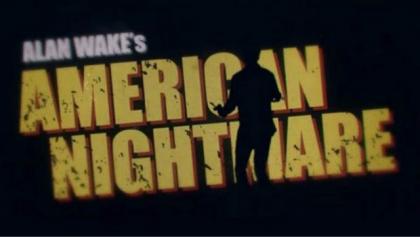 Alan Wake's American Nightmare Achievements List
Alan Wake's American Nightmare Achievements List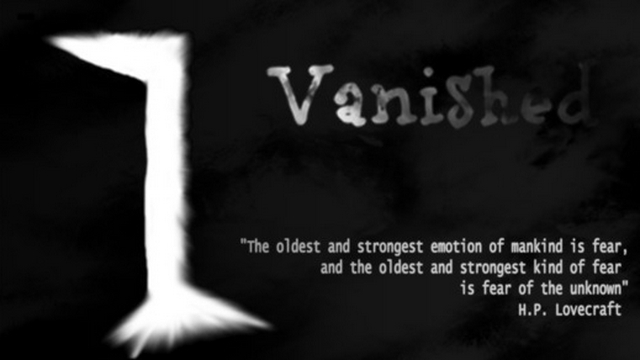 10 Scary iPhone & iPad Games, Just in Time for Halloween
10 Scary iPhone & iPad Games, Just in Time for Halloween